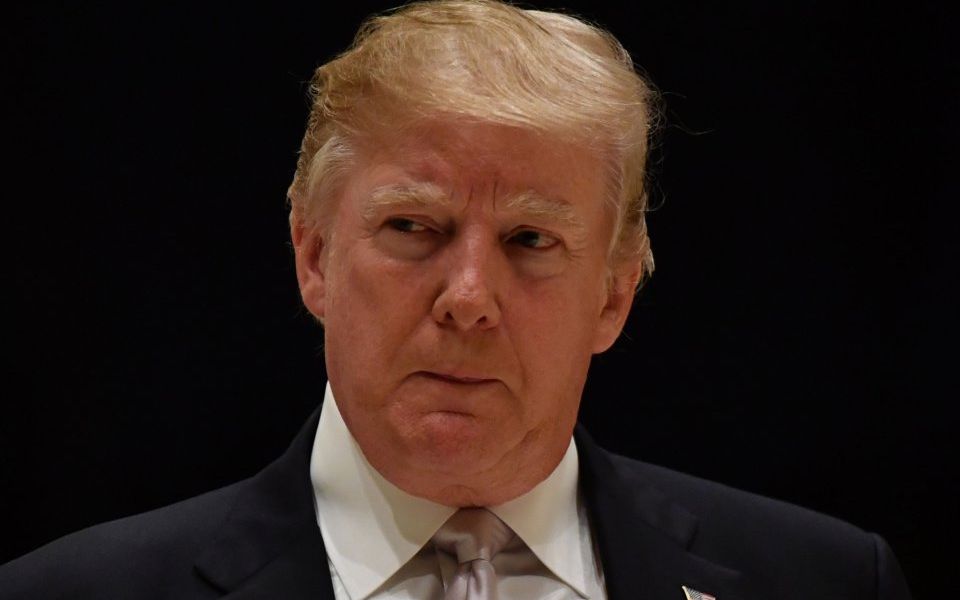Trump’s migration slur displays disturbing economic ineptitude

Immigrants from “shithole countries” are not welcome in the US.
That was reportedly President Donald Trump’s verdict at a meeting last week on migration policy.
The subsequent outrage has centred around the obscene, and downright racist, language allegedly used to describe Haiti, El Salvador, and certain African nations (which the President has since denied).
Read more: Fire and Fury review: A blow-by-blow account of extreme incompetence
The backlash is valid, even if the wording is not all that surprising, given it came from the mouth of a man who launched his presidential campaign by calling Mexicans rapists and drug-dealers.
But the real issue with Trump’s comment isn’t the language. It’s the fundamental misunderstanding about how migration works.
Trump’s point rests on the misapprehension that the US does not benefit from migrants who come from countries which are less economically developed, with higher poverty rates and lower standards of living. Rather, he reportedly called for more migrants from places like Norway.
Essentially, in the crudest possible terms, he is conflating “shithole countries” with “shithole people”.
In reality, the sorts of people who have the drive and wherewithal to defy their economic surroundings and move across the world for better opportunities are exactly the kind of dynamic, enterprising individuals that developed nations should be welcoming.
Arvind Magesan, a Canadian economics professor, has looked at the relative rates of income, employment, and education between migrants to Canada from “Norway” countries and “shithole” countries.
On almost every metric, the immigrants Trump would seek to keep out are more economically attractive than those he would encourage: they are better educated, more likely to be employed, and receive less in terms of government welfare. Crucially, in many ways they are also more qualified and prosperous than native Canadians.
The figures tell a similar story in the US. According to World Bank data, immigrants aged 30 and over from African countries are nearly 50 per cent more likely to have a bachelor’s degree or higher than native-born Americans. One in three of these degrees are in STEM subjects – skills the US economy desperately needs.
And even immigrants without specific technical skills are crucial for America’s economy. Oxford Economics estimates that, due to the ageing population and low birth rate, first and second generation immigrants will be the sole source of growth in the US labour market over the next 20 years.
Simply put, the US needs migration to get the workers it requires to keep running.
As for Norway, immigrants from here are not intrinsically “better” by virtue of the GDP of their home nation than those from developing countries. In fact, World Bank data shows that Norwegians in the US are on average poorer than Norwegians in Norway, and these immigrants have historically fared worse in America than those from other countries – so much so that a surprisingly high number return.
People tend to act in their own economic self-interest. If they want to move to the US, it is because they think the opportunities there will enable them to be more prosperous.
A sensible migration policy will encourage the free flow of skills as much as is practically possible. Whether this is done through a points-based merit system, company-sponsored visas, or simple faith in market mechanisms, the important fact to remember is that it is the individuals who matter, not their home country. The US does not “lose” from accepting people from poorer nations. It gains.
This misunderstanding goes to the heart of why Trump is wrong more generally on globalisation.
The key pillar of his platform has been putting America first and “winning” against countries such as Mexico and China where the US has a trade deficit. In the President’s mind, trade is a zero-sum game: if China and Mexico are selling more, that means America is losing out.
But in reality, the main beneficiaries of cheap Chinese and Mexican goods flooding the US market are American consumers.
Yes, some US businesses may struggle and jobs may be lost, but consumers benefit from access to a greater choice of cheaper products, reducing livings costs and increasing spending power, which in turn stimulates the economy. History shows us that trade wars and tariffs end with a dearth of consumer choice and a less dynamic economy.
Draconian and arbitrary migration restrictions will do the same.
As with trade, the beneficiaries of migration are not only the migrants themselves, but the businesses that can hire workers from a larger, more highly skilled or motivated pool, thus improving productivity and increasing economic prosperity for everyone.
There is a lesson here for UK politicians considering Britain’s migration policy post-Brexit.
Control over borders – a key concern for both Brexit and Trump voters – is a legitimate aim (though building a 3,000km wall is probably overkill). But shutting off the migration tap to soothe unfounded misconceptions about the “right” kind of people to let in is economic self-harm.
Trump’s problem is not just that he used racist language to describe his preferred global policy model. It’s that this model would be detrimental for America.
Read more: Botswana wants to know if Trump considers it a "s***hole country"